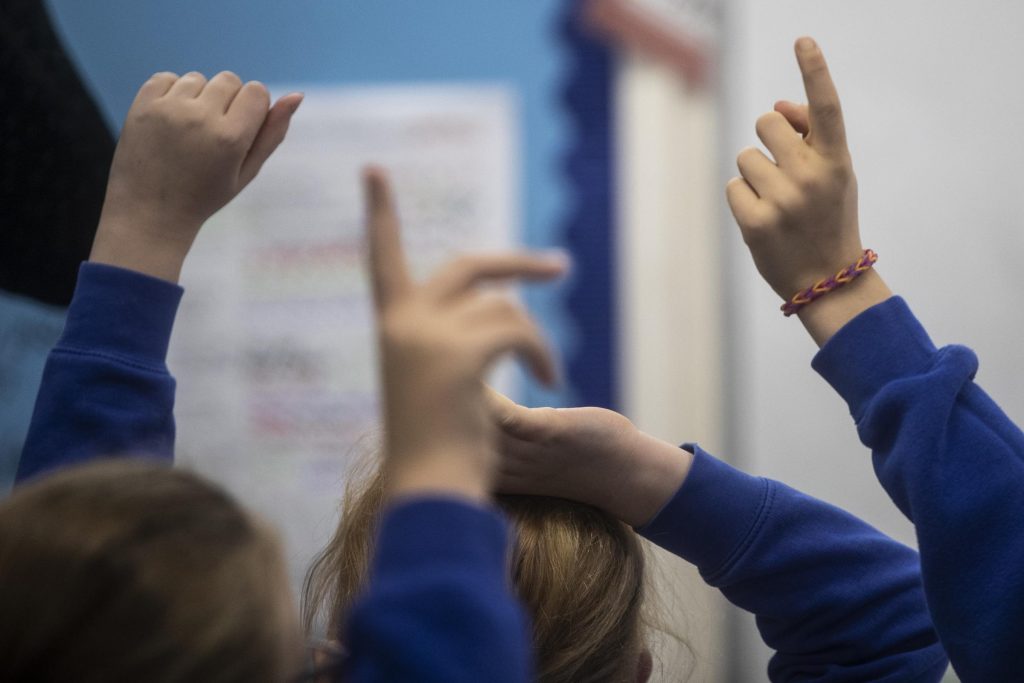MEMBERS of the Senedd voted to pass the National Curriculum Bill’s final text, meaning the Curriculum for Wales will now be introduced in 2022.
Throughout the debate on its final stage, which took place on Tuesday (March 9), opposition members praised Wales’ Education Minister, Kirsty Williams. Members from all sides saluted her patience and diligence in guiding a significant piece of legislation onto the statute book.
Even members who disagreed with the Bill’s content and opposed its passage highlighted the Minister’s personal contribution and commitment to creating Wales’ first national Curriculum.
A NATIONAL MISSION
The Bill was the subject of intensive scrutiny and broad consultation.
Speaking in the Senedd, Mrs Williams said the Bill’s passage was ’a national mission’.
“It would have been simpler to cook up plans in Cathays Park in a back office and issue a take-it-or-leave-it offer,” the Education Minister said.
She continued: “But our combined efforts with teachers, academics, parents, and many organisations here and abroad is worth so much more because of that ‘national mission’ spirit.”
Kirsty Williams paid a personal tribute to Labour MS Lynn Neagle, Chair of the Children’s and Young Persons’ Committee.
Under Lynn Neagle’s leadership, the Committee rigorously scrutinised the Bill and made a series of recommendations in its text.
Of the Labour backbencher, Kirsty Williams said: “I conclude by thanking Lynne Neagle for her tough, astute, tenacious, sometimes bloody-mindedness in her approach to this legislation. I mean that as a compliment, Lynne.
“As I said earlier, the results of the committee’s work have made this a better Bill.”
She had similarly warm words for her Conservative opposite number, Suzy Davies.
Mrs Williams acknowledged: “She has worked incredibly hard on this Bill, and I know that she’s been fully committed to the scrutiny process. As I said in opening my comments today, I think we have a better Bill due to the CYPE committee’s efforts. I have gone to great lengths to try and respond positively to the cross-party report that the Committee published to try and meet those aspirations.”
Like Mrs Williams, Suzy Davies steps down as an MS in May. She was unable to attend the debate.
CURRICULUM CONTROVERSY
Despite the Minister’s warm words, the new Curriculum’s journey to the statute book has not been without controversy.
Activists railed against the Curriculum’s Religion Values and Ethics element and its focus on Welsh language teaching’s importance to all of Wales’ pupils. The inclusion of Relationships and Sex Education (RSE) in the Curriculum provoked vituperative responses from a small group of parents. They opposed children receiving what they’ve claimed will be inappropriately explicit sexual education.

Senior Policy Researcher for NSPCC Cymru/Wales, Dr Sarah Witcombe-Hayes says: “The strength of support for mandatory relationships and sexuality education to be included in the new Curriculum for Wales by leading child protection experts and charities highlights what a game-changer this is.
“The changes are long overdue, but in passing this Bill Senedd members are helping to protect children and young people from abuse – making sure every child and young person in Wales can access high-quality RSE that is relevant, sensitive and appropriate to their own capacities and needs.
“It will help all learners understand their rights to safe, healthy and fulfilling relationships throughout their lives, and schools must now be supported and fully resourced to deliver inclusive and high-quality RSE from September 2022.”
Regarding Welsh Language teaching and RSE, those with genuine concerns had those worries preyed upon to grandstanding political effect by fringe political movements, such as Ukip and Abolish the Assembly (sic.)
Speaking for the latter group, Gareth Bennett said: “The downgrading of English teaching in the interest of immersion in Welsh is a sinister development. It will surely disadvantage Welsh schoolchildren who are not from a background of speaking Welsh at home.”
Dr Felix Aubel, a noted controversialist, said: “UKIP would divert millions of pounds by abolishing the legal requirement to forcibly impose the Welsh language on people.”
Like Abolish, UKIP will campaign on a platform of abolishing Welsh parliamentary democracy.
Those organisations’ concerns on Welsh language education ignore the fact Welsh is the national language of Wales.
Every credible educational study underlines how children benefit from bilingual education.
HISTORY TEACHING
CONCERNS PLAID
On Tuesday, further and concerted criticism of the new Curriculum came from Plaid Cymru.

Perturbed by the absence of Welsh history’s teaching, Plaid’s Sian Gwenllian announced the party would vote against the Bill in its final stage.

Plaid’s Shadow Education Minister said that, although her party supported the Bill’s direction of travel: “Plaid Cymru argued for the inclusion of two other mandatory elements that could also contribute towards creating that social, far-reaching transformation that we want to see, namely the history of Wales in all of its diversity, including black and people of colour history, and environmental education, including climate change.
“There is no assurance [these subjects] will be given due attention, and for me, that is a fundamental flaw within the Bill. Guidance simply isn’t enough. It’s easy to scrap guidance or change it, unlike issues that have a statutory basis and are included on the face of the Bill.
“We will, therefore, vote against the legislation today.”
In response, Kirsty Williams said: “For the absolute avoidance of any doubt, Welsh histories and the story of Wales will be a compulsory part of this Curriculum. It is included in the statutory guidance that has already been issued and will have a statutory underpinning.
“There will be no way a school cannot teach the history of Wales. Indeed, every single area of learning and experience must have a golden thread of a celebration of Welsh identity in all its diversity in every area.”
The Minister observed acidly: “I accept it’s election time, and there are petitions and e-mails to be sent, but it’s regrettable, as I said, on this historic day, with the opportunity for the first time in our nation’s history to have our own curriculum, that The Party of Wales will choose to vote against.”
SCHOOLS GIVEN
TIME TO PREPARE

The Bill passed by 32 votes to 18 with one abstention. Four Conservative Senedd Members voted with the Government, including Conservative leader Andrew RT Davies.
Following Royal Assent, which is anticipated in April, the Bill will become the Curriculum and Assessment (Wales) Act 2021.
Last year, the Minister published an updated action plan setting out the next steps in Wales’ reform journey, ahead of the new Curriculum’s introduction.
Alongside the updated ‘Our National Mission’ action plan, the Welsh Government also published a document setting out shared expectations of what curriculum realisation means for practitioners and schools from 2022. Curriculum for Wales.
The journey to 2022 has been created to help schools prepare for designing and implementing their Curriculum.
In January, the Welsh Government published the Curriculum Implementation Plan, which will steer its work with partners to deliver the Curriculum for Wales


















Add Comment